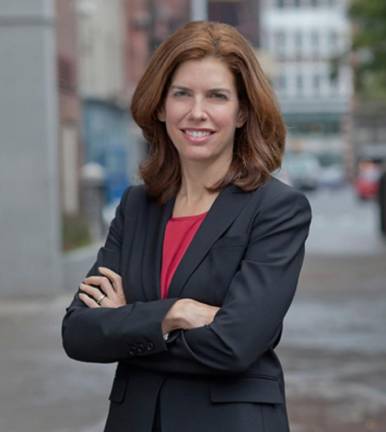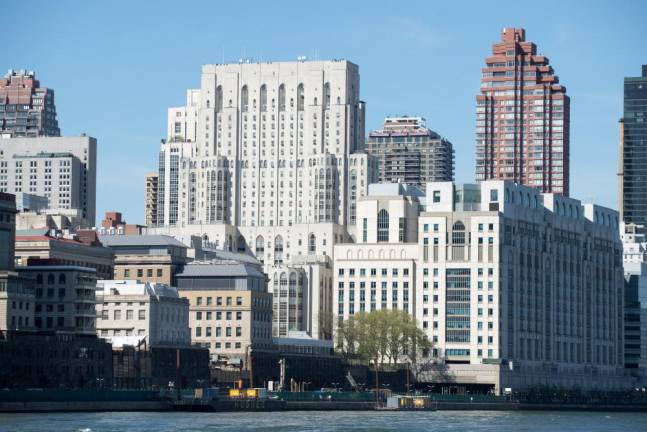City Council Passes Bill Creating Nation’s First Office Of Healthcare Accountability
City Council Member Julie Menin, who was the sponsor of the Healthcare Accountability and Consumer Protection Act, spoke with Straus News about the new law. It will establish a first-in-the-nation Office of Healthcare Accountability in NYC, and will list the prices various hospitals charge for medical procedures. The bill is intended to shine a spotlight on private hospitals that charge exorbitant prices for procedures, all while benefitting from city property tax breaks.


Different private hospitals in New York City have truly astounding fluctuations in pricing for the exact same procedures, but now consumers will be able to see the costs in black-and-white--all thanks to a new bill that the City Council just passed.
“The Healthcare Accountability and Consumer Protection Act will revolutionize healthcare in New York City by bringing transparency to prices and empowering New Yorkers with the information they deserve,” said District 5 Council Member Julie Menin, who was the key sponsor of the bill.
According to research done by the labor organization 32BJ Health Fund, a cesarean section--recognized by many medical professionals worldwide as a potentially life-saving procedure--is just one example; at Montefiore Medical Center in the Bronx, the procedure costs roughly $55,077, whereas at the publicly funded NYC Health + Hospitals branches it costs only $17,681. An outpatient colonoscopy, a highly recommended and crucial preventive procedure for middle-aged adults everywhere, comes out to $10,368 at New York- Presbyterian–but only $2,185 at publicly funded NYC Health + Hospitals.
The bill was opposed by the powerful hospital industry lobby, the Greater New York Hospitals Association. “Hospitals in New York City face severe economic pressures, including Medicaid and Medicare reimbursement that doesn’t come close to covering the cost of care,” GNYHA president Kenneth E. Raske stated.
The New York City Council was not swayed by their arguments, and the bill passed by a 50-0 margin.
Menin said with the city’s healthcare costs surging, the bill will end up saving money for years to come.
She added that “with this legislation, we will finally uncover the hidden costs and expose the price gouging that has plagued our healthcare system for far too long. We cannot allow exorbitant healthcare costs to burden our families, businesses, and city government any longer.”
“If you think about, this is one of the only industries where–as a consumer–you are procuring a service, but at the end of the day you have no idea what you’re gonna be charged for that very service,” Menin said. In addition to creating a centralized Office of Healthcare Accountability (that reports to the Mayor, the NYS Attorney General, and the City Council Speaker) to tackle the problem, “there would be a website listing by hospital, by procedure what various medical procedures cost.” In shining a light on these disparities, Menin hopes action can be taken to bring healthcare care costs down.
Yet accountability is not always merely a matter of plain transparency, or what Menin describes as unearthing the “secret and opaque process” of determining exorbitant procedure prices. To ensure compliance and material change, the bill seems to promise what Menin says is “disclosure of city tax breaks...right now New York City is giving $1.5 billion in tax breaks to these not-for-profit private hospitals. At that tax rate, these hospitals are supposed to be giving the same attendant amount of charitable and community care...but they’re not.”
Menin singled out New York Presbyterian, located in her district on the Upper East Side, which she claims is shortchanging the city ”$369 million for the tax break that they are receiving” by not providing the correct amount of charity care. “Perhaps these tax breaks could be rescinded,” she said, “if compliance is still not forthcoming after expanded transparency measures.”
As for the implementation of the bill, Menin says that “the next stage is working with the administration in terms of the staffing plan, because I want to make sure the office is robustly staffed.” The bill is currently on the desk of Mayor Eric Adams, who is a supporter.
“We’re committed to ensuring every New Yorker has access to quality and affordable health care with transparent pricing,” said a spokesperson for the mayor. “This bill will make it easier for New Yorkers to find information on hospital pricing, and we’re grateful to our partners in labor and the council for pushing this forward.”
Kevin Morra, co-founder of the advocacy group Power to the Patients, was overjoyed by the passage of the bill. He gave a statement claiming that “all New Yorkers have been living with a precarious healthcare system, rigged against them for financial gain, especially apparent in our most vulnerable moments. Today, thanks to the leadership and uncompromising tenacity of Council Member Julie Menin, along with a super majority of her Council Member peers, we will realize an end to the total disregard for patient rights and patient protections in New York City.”
Executive Director of District Council 37 Henry A. Garrido also voiced his pleasure with the bill, claiming that “once implemented, the Healthcare Accountability and Consumer Protection Act will be a critical foundation for our fight against the unfair healthcare costs that eat away at every New Yorker’s bottom line.”